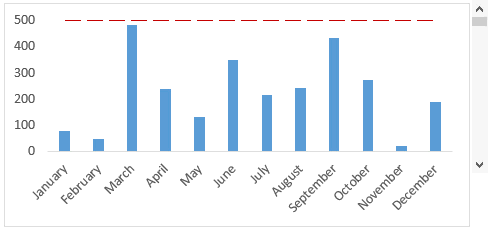Pengaruh Model Pembelajaran Problem Based Learning (PBL) Terhadap Prestasi Hasil Belajar Bahasa Indonesia
Abstract
This study aimed to know the effect of the Problem Based Learning (PBL) method on the students achievement outcomes of Indonesian Language Learning at Class VIII MTs NW Aik Anyar Academic Year 2021/2022. The research used a quasi-experimental research design. The population of this study were all students of class VIII at MTs. NW Aik Anyar. Class VIII B was experimental class, while class VIII A is the control class. The research design used was Posttest-Only Control Group Design. Data collection techniques used tests. Analysis of the data used the analysis of the t-test Polled Variance. The results showed that the average value of the experimental class learning outcomes was 75,95 and the control class was 61,53. To test the normality of the experimental class data, X2count = 5,0605 with X2table = 11,070, because X2count < X2table, the data was normally distributed. And the normality test of the data for the control class produces X2count = 2,3486 with X2table = 11,070, because X2count< X2 table, the data was normally distributed. The results of the hypothesis test of learning outcomes show that t count > ttable is (3.383 > 1.684) which meant, H0 was rejected and Ha was accepted. So it could be concluded that "There is a significant effect using the Problem Based Learning (PBL) Learning Method on the students Achievement outcomes of Indonesian Language Learning at Class VIII MTs. NW Aik Anyar.
Kata kunci :Pbl, Learning Achievement
This study aimed to know the effect of the Problem Based Learning (PBL) method on the students achievement outcomes of Indonesian Language Learning at Class VIII MTs NW Aik Anyar Academic Year 2021/2022. The research used a quasi-experimental research design. The population of this study were all students of class VIII at MTs. NW Aik Anyar. Class VIII B was experimental class, while class VIII A is the control class. The research design used was Posttest-Only Control Group Design. Data collection techniques used tests. Analysis of the data used the analysis of the t-test Polled Variance. The results showed that the average value of the experimental class learning outcomes was 75,95 and the control class was 61,53. To test the normality of the experimental class data, X2count = 5,0605 with X2table = 11,070, because X2count < X2table, the data was normally distributed. And the normality test of the data for the control class produces X2count = 2,3486 with X2table = 11,070, because X2count< X2 table, the data was normally distributed. The results of the hypothesis test of learning outcomes show that t count > ttable is (3.383 > 1.684) which meant, H0 was rejected and Ha was accepted. So it could be concluded that "There is a significant effect using the Problem Based Learning (PBL) Learning Method on the students Achievement outcomes of Indonesian Language Learning at Class VIII MTs. NW Aik Anyar.
References
Ana Nur Fatma dan Widodo Budhi. (2018). Pengaruh Model Pembelajaran Problem Based Learning Terhadap Prestasi Belajar Fisika. Jurnal Ilmiah Pendidikan Fisika-Compton. Volume 5, Nomor 1, hal. 23-29.
Ali Hamzah dan Muhlisrarini. 2014. Perencanaan dan Strategi Pembelajaran Matematika. Jakarta: Rajawali Press.
Amir, Taufik. 2009. Inovasi Pendidikan Melalui Problem Based Learning Bagaimana Pendidik Memberdayakan Pemelajar di Era Pengetahuan. Jakarta: Kencana Prenada Media Group.
Arikunto, Suharsimi. 2010. Manajemen Penelitian. Jakarta: Rineka Cipta.
Asiroha Siboro,Rameyanti Tampubolon, Meriati Tafonao, Minta Syukur Ndruru, Mardiana Amazihono. (2021). Pengaruh Model Pembelajaran Inkuiri Berbantuan Project Terhadap Hasil Belajar Fisika Pada Materi Pokok Pengukuran Kelas X Semester I SMAS GKPI Padang Bulan Medan T.P 2020/2021. Jurnal Penelitian Fisikawa. Volume 4, Nomor 1, hal.10-16.
Aunurrahman. 2016. Belajar dan Pembelajaran. Bandung: Alfabeta.
Azwar, Saifuddin. 2012. Reliabilitas dan Validitas. Yogyakarta: Pustaka Belajar
Azwar, Saifuddin. 2015. Tes Prestasi Fungsi dan Pengembangan Pengukuran Prestasi Belajar. Yogyakarta: Pustaka Belajar.
Baharudin & Esa Nur Wahyuni. 2008. Teori Belajar & Pembelajaran. Jogjakarta: Ar-Ruzz Media.
Didi Supriadie & Deni Darmawan. 2013. Komuniksi Pembelajaran. Bandung: PT. Remaja Rosdakarya.
Djamarah, Saiful, Bahri. 2012. Prestasi Belajar dan Kompetensi Guru.Surabaya: Usaha Nasional.
Fathurrahman, Muhammad. 2015. Paradigma Pembelajaran Kurikulum 2013 Sterategi Pembelajaran di Era Global. Yogyakarta: Kalimedia.
Hamalik, Oemar. 2001. Kurikulum dan Pembelajaran. Jakarta: Bumi Aksara.
Jufri, Wahab. 2010. Belajar dan Pembelajaran Sains. Lombok Barat NTB: Arga Puji Press.
Karunia Eka Lestari dan Mokhammad Ridwan Yudhanegara. 2015. Penelitian Pendidikan Matematika. Bandung: PT. Rafika Aditama.
Purwanto. 2011. Evaluasi Hasil Belajar. Yogyakarta: Pustaka Belajar.
Ratumanan. 2015. Inovasi Pembelajaran. Yogyakarta: Ombak.
Ridwan. 2015. Dasar-Dasar Statistik. Bandung: Alfabeta.
Risnawati Amiludin dan S. Sugiman. (2016). Pengaruh Problem Posing Dan PBL Terhadap Prestasi Belajar, dan Motivasi Belajar Mahasiswa Pendidikan Matematika. Jurnal Riset Pendidikan Matematika. Volume 3, Nomor 1, hal. 100-108.
Rizema, Sitiatava, Putra. 2013. Desain Belajar Mengajar Kreatif Berbasis Sains. Yogyakarta: DIVA Press.
Slameto. 2010. Belajar Dan Faktor-Faktor Yang Mempengaruhinya. Jakarta: Rineka Cipta.
Sriamah, Iskandar Wiryokusumo, Ibut Priono Leksono. (2020). Efektivitas Model PBL dan Motivasi Belajar Terhadap Prestasi Belajar. Jurnal Pedagogi dan Pembelajaran. Volume. 3, Nomor 3, hal. 324-334.
Sugiyanto. 2010. Model-Model Pembelajaran Inovatif. Surakarta: Yuma Pustaka.
Sugiyono. 2015. Metode Penelitian Pendidikan Pendekatan Kuantitatif, Kualitatif dan R&D. Bandung: Alfabeta..
. . (2014). Statistik Untuk Penelitian. Bandung: Alfabeta.
. . (2010). Statistik Untuk Penelitian. Bandung: Alfabeta.
Suprijono, Agus. 2019. Model-model Pembelejaran Emansipatoris. Yogyakarta: Pustaka Belajar. .
Susanto, Ahmad. 2013. Teori Belajar dan Pembelajaran di Sekolah Dasar. Jakarta: Kencana Prenada Media Group.
Sudjana, Nana. 2011. Penilaian Hasil Proses Belajar Mengajar. Bandung: PT. Remaja Rosda Karya.
Thobroni, M. 2016. Belajar dan Pembelajaran Teori dan Praktik. Yogyakarta: Ar-Ruzz Media.










